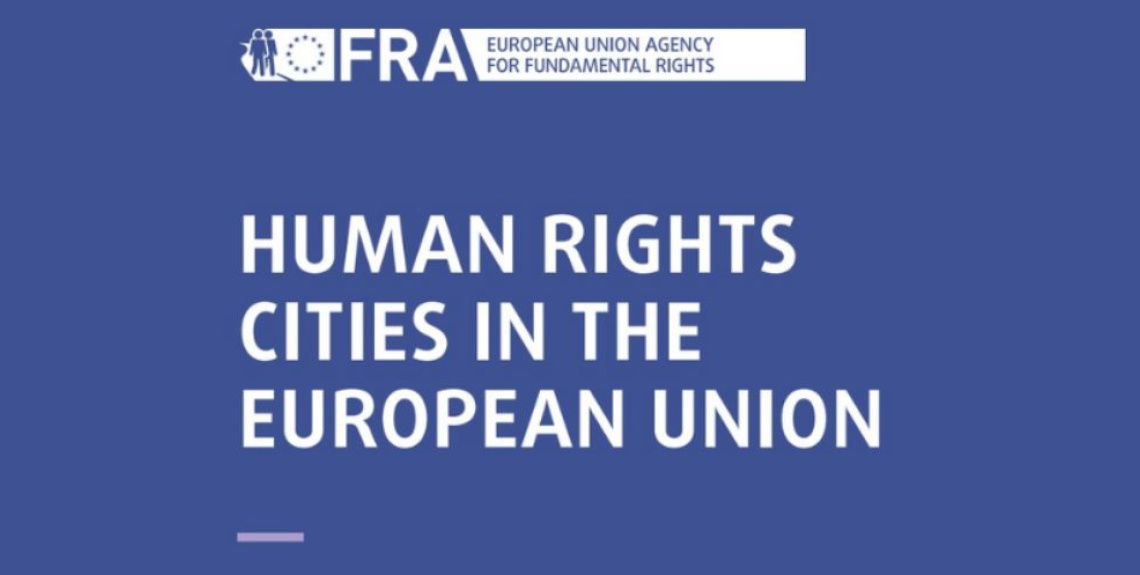On the occasion of the commemoration of the 75th anniversary of the Universal Declaration of Human Rights, the Committee on Social Inclusion, Participatory Democracy and Human Rights interviews the European Union's Fundamental Rights Agency (FRA) about its capacity building and knowledge sharing efforts for cities and local authorities seeking to advance and integrate human rights into people's daily lives. To achieve this goal, the FRA recently published the Cities of Human Rights in the European Union guide - in this interview they tell us about its relevance in this important year.
1. What is this guide, and who is it for?
This guide is a practical guidance on how to implement the framework for human rights cities in the EU, which was developed by the Fundamental Rights Agency with a group of human rights cities, networks, International Organisations, experts and practitioners.
The framework consists of three main elements: foundations, structures and tools. Putting these elements in place can help cities and other local authorities better integrate human rights in their work, whether they already are human rights cities, intend to become one, or are simply interested in reinforcing a human rights-based approach. Taken together, these elements comprise the mechanisms, bodies and resources that can help a city integrate its commitment to human rights in its activities.
"The guide can help those that wish to become human rights cities develop policies and strategies they would need in that regard. Furthermore, the guide can help declared human rights cities assess their performance in making real their commitment to human rights."
The guide is currently available in Catalan, Czech, English, French, German, Hungarian, Italian, Polish, Spanish and Swedish. Additional language versions will be available in the coming months. This video produced by the Fundamental Rights Agency shows why the cities of Vienna (Austria) and Utrecht (Netherlands) have become human rights cities.
2. Why did the Fundamental Rights Agency develop a framework for human rights cities, and how could this European initiative inspire other regions?
The main catalyst for developing this framework was the interest of a group of cities, regions, and practitioners in Europe and of the Fundamental Rights Agency to work together to foster opportunities for cooperation and reinforce links between declared human rights cities and the European Union programmes, policies and the EU’s Charter of Fundamental Rights. We believe this joint initiative succeeded in this in several ways.
First, the framework makes it more tangible for cities in the EU what it entails to be a human rights city. This complemented the efforts of cities to showcase how they contribute to protecting and implementing human rights.
Second, the framework and its follow-up work provides a space through which a growing group of cities and stakeholders can share their experiences with integrating human rights in their work. The participants in the group inform each other on developments related to human rights cities, also outside of the EU, which has led to cities developing new initiatives and projects to foster human rights.
The United Nation’s Human Rights Office (OHCHR) and the Committee on Social Inclusion, Participatory Democracy and Human Rights of the United Cities and Local Governments (UCLG-CSIPDHR,) among others, contributed to this work since the beginning, helping to connect this European initiative to the global movement of human rights cities.
The entire process that led to the development of the framework could serve as inspiration for other regional initiatives worldwide that wish to develop their cooperation and offer a space for regular exchanges and mutual learning between human rights cities.
3. The year 2023 marks the 75th anniversary of the Universal Declaration of Human Rights. How will FRA contribute to this celebration?
It is important to mark the 75th anniversary of the Universal Declaration of Human Rights and raise awareness of it, in particular among children and youth. This year’s celebrations can help to show how far we have come since its adoption and discuss what more we can do to make human rights a reality in people’s lives.
The Fundamental Rights Agency will host a Fundamental Rights Dialogue with young people at the Human Rights Day event organised by the Municipality of Vienna on 10-12 December on what the Declaration means for them.


